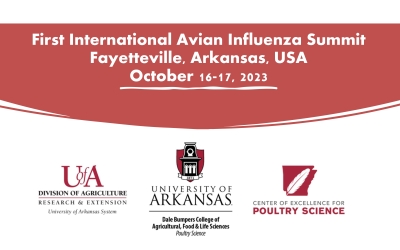Genome editing to create avian influenza resistance in chickens
Authors: Mike McGrew
GMPC TOP
2023.
vol. 3, Iss. 1
pp:0-30
Doi: https://doi.org/10.51585/gtop.2023.1.0033

Abstract:
Avian influenza (AI) significantly threatens global poultry production and public health. Efforts to combat this viral disease have been predominantly focused on vaccination strategies, with limited success in controlling its spread. This study explores a novel approach utilizing genome editing techniques to enhance avian influenza resistance in chickens. Specifically, we employ CRISPR-Cas9 technology to target the ANP32 genes, endogenous proteins co-opted by influenza for replication in chicken cells. Through the precise modification of these genes, we aimed to elucidate their role in conferring resistance to low and high pathogenic avian influenza strains. We employed genome editing methodologies to introduce specific modifications in the chicken genome of reproductive cells. By introducing targeted genetic alterations in the germ cells, we created chickens that transmit their resistance trait to subsequent generations of chickens. The outcomes of this research have the potential to change avian influenza management strategies, offering a new paradigm for disease resistance in poultry populations. This approach holds promise for sustainable and cost-effective AI management strategies, reducing reliance on continuous vaccination campaigns. Moreover, the knowledge gained from our study may have broader implications for understanding host-influenza interactions in multiple species and inform future strategies for combating emerging infectious diseases at the human-animal interface.
Keywords:
Influenza, Public health, CRISPR-Cas9, ANP32 genes, Vaccination campaigns
Statistics:
Article Views: 1315
PDF Download: 86